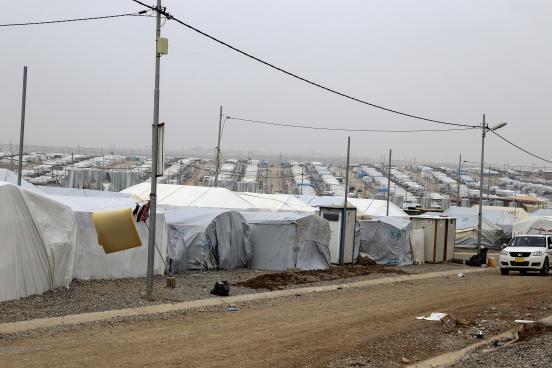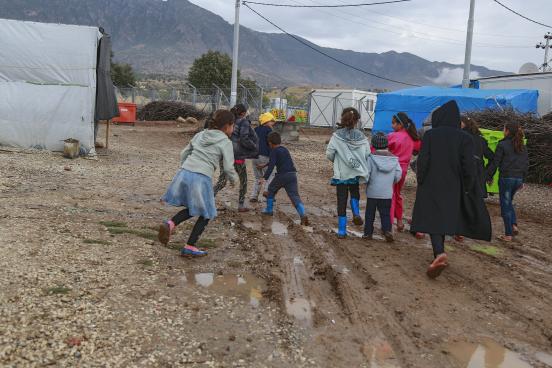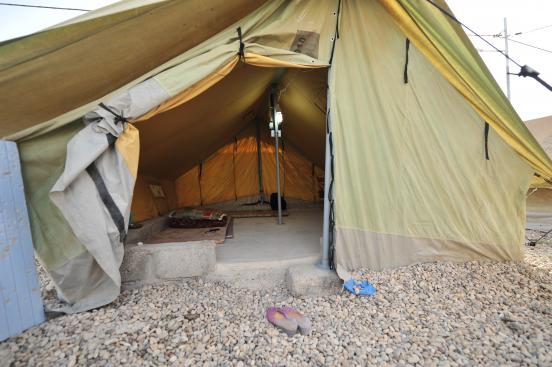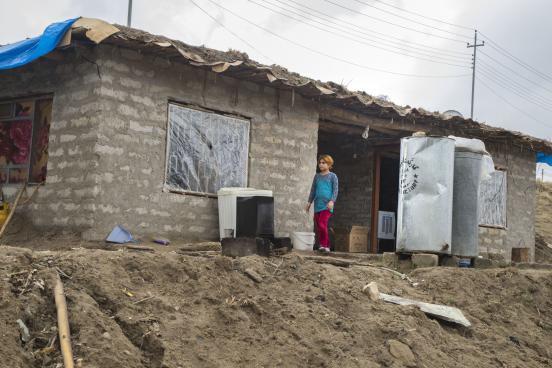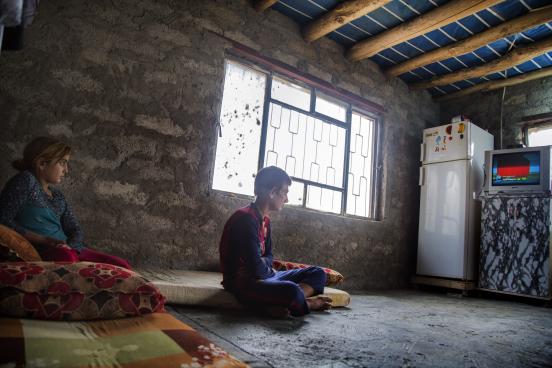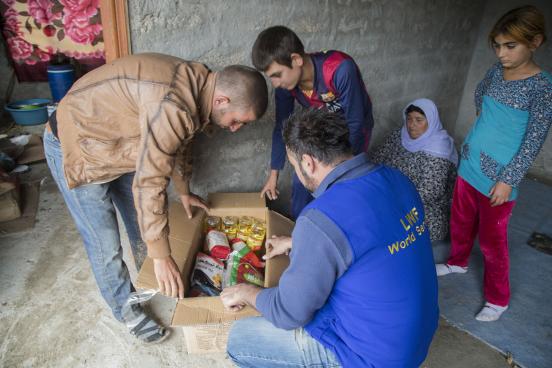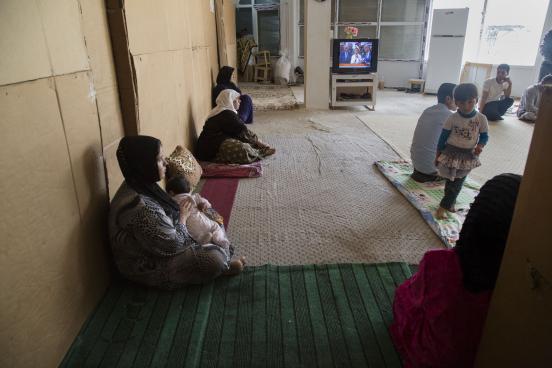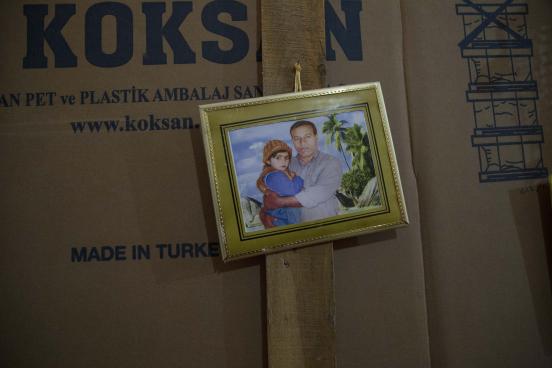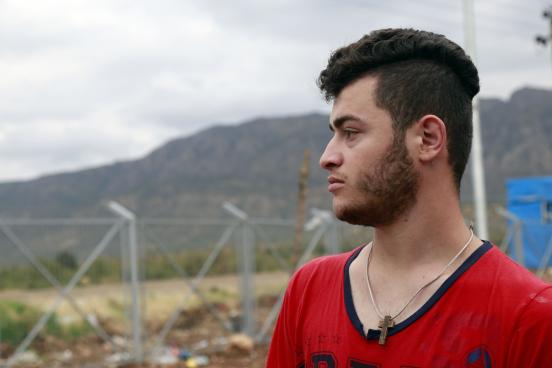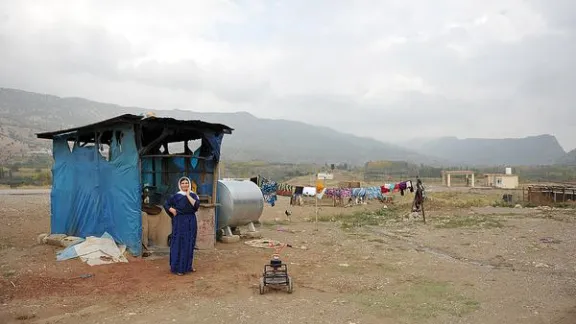
The LWF is helping camp residents prepare for winter in northern Iraq. LWF/Seivan Salim
DOHUK, Iraq/ GENEVA, 9 November 2015 (LWI) - “We thought it would be a few days, until things calmed down”, Nadine says. “My parents said: go visit your uncle. It’s just a short field trip. That field trip has lasted a year and a half now.”
The young woman has been living in Davudiya refugee camp, northern Iraq, for a year. The Christian family fled their home village, Bartolla, in August 2014, when Islamic State militia started advancing on the Nineva plain. They now live in a camp for internally displaced people in Kurdistan, together with Yazidi, Muslim and Turkman families. All of them fled a militant group that killed and enslaved anyone who did not share their faith.
Davudiya camp, located about an hour from the Kurdish city of Dohuk, northern Iraq, is one of the camps supported by The Lutheran World Federation. The LWF installed water pipes, storage tanks and latrines and provided people with hygiene kits. “Thank you to all the people who are helping us,” Nadine’s father Theriakos says. “We really appreciate that. This is a stupid war of narrow-minded people.”
Young people want to leave
The family is among the lucky ones to have a container to sleep in. The camp’s location in the mountains makes it impossible to house people in tents like the 17 other camps for displaced people around Dohuk. In winter, the temperature drops below zero and it snows. Already cool autumn rains have turned the streets and grounds within the camp into a mud pit, where children play, some of them still wearing sandals and socks. In the containers, families of four to six people share a small room for sleeping.
There is no work for the people in the camp, many of whom do not speak the local Kurdish language. Theriakos’ wife, Sara, a nurse, sometimes helps neighbors who have fallen ill and has applied with the camp management to work at the health post. Other than that, the family passes the time visiting neighbors and playing cards.
“We don’t know how to continue like this,” Theriakos says. “I am an old man, I want to stay but the young people want to leave.” While he speaks, images of immigrants crossing borders in Europe can be seen on TV in the small room, where 10 people have assembled around an improvised dinner table.
Safe but exhausted
According to the UN High Commissioner for Refugees (UNHCR), 8.2 million people in northern Iraq need humanitarian assistance as a result of the IS advance and terror. Around the city of Dohuk, 18 camps have been set up for internally displaced people, four more for refugees from other countries, housing a total of more than 550,000 people. Most will spend a second winter in extremely run-down tents which were only meant as a short-term solution. More than 700,000 people live outside camps, many of them in communal shelters, churches and unfinished buildings.
“It’s difficult for us. Nobody knows us, nobody understands us,” 75-year-old Rejena Pulse Isaa says. She and her son, who lost a leg in the Iraq-Iran war, share a room in a sports center with an elderly couple: four people in about 16 square meters. They have pinned church calendars and images of saints on the walls, above the piles of blankets and household items they received in previous distributions. Outside, in the hall, families have used cardboard boxes to build walls about one meter high and separate some private space.
Dread of winter
The situation is even more congested in St Peter and Paul church, Dohuk. The congregation has taken in nine families. As 31 people live in one room, the noise level is exhausting. Men, women and children have black circles under their eyes. “We feel safe here, but we are very tired,” Ban, 48 years old and mother to two girls, says. Her 12-year-old daughter will miss this school year, as there are not enough classrooms in Dohuk. “Winter is coming, the toilets are outside and it gets very cold in here,” another mother says. “We do not have enough warm clothing for the children.”
Even the families with small children are now thinking about making the dangerous journey to Europe. “We are afraid, we know we can die crossing the Mediterranean,” they say. “But we prefer that to staying here. Here, every day feels like dying.”
LWF is supporting the internally displaced and refugees in and around Dohuk with food, winter clothing, hygiene kits, water and sanitation kits, kerosene and psychosocial support. ACT Alliance has issued a new appeal, calling for donations to distribute food, winter clothing and kerosene for heaters to 400,000 people around Dohuk.
